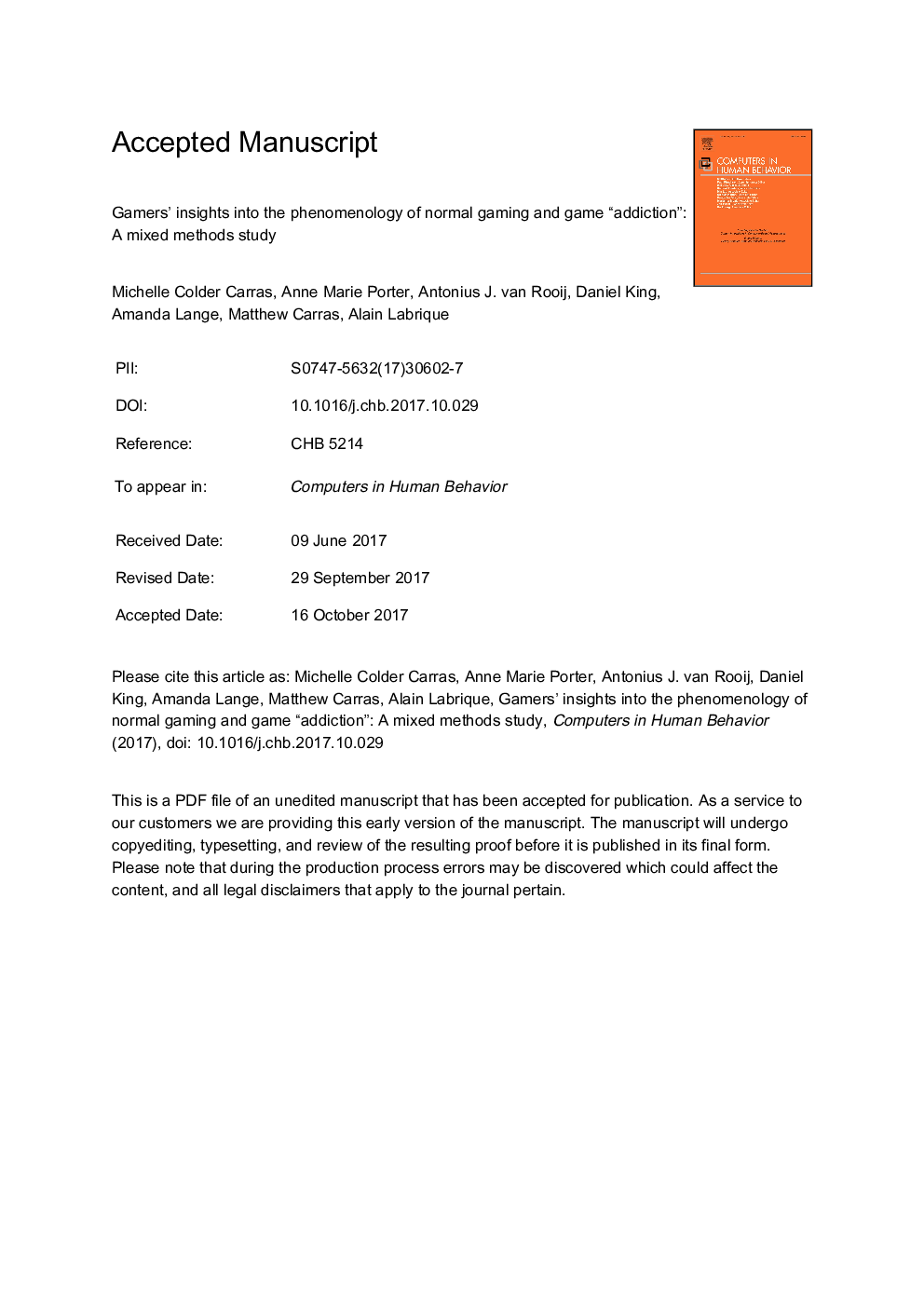| Article ID | Journal | Published Year | Pages | File Type |
|---|---|---|---|---|
| 6836359 | Computers in Human Behavior | 2018 | 43 Pages |
Abstract
In response to calls for further research into the phenomenology of Internet gaming disorder (IGD), we used a community-engaged consensus development approach to evaluate how members of the “gamer culture” describe problematic gaming and the relationship of these descriptions to the proposed IGD criteria. Two focus groups of gamers were recruited at a video game convention. Participants were asked to submit suggestions for signs of game “addiction”. Participants discussed and ranked the criteria in order of conceptual importance. The rankings were analyzed quantitatively, and then a multidisciplinary team compared the ranked criteria to the DSM-5 IGD proposed criteria. The strongest agreement between participants' rankings and IGD symptomatology was found for harms/functional impairment due to gaming, continued use despite problems, unsuccessful attempts to control gaming, and loss of interest in previous hobbies and entertainment. There was less support for other IGD criteria. Participants also offered new content domains. These findings suggest that collaborative knowledge-building approaches may help researchers and policymakers understand the characteristics and processes specific to problematic video game play and improve content validity of IGD criteria. Future efforts may benefit from multi-stakeholder approaches to refine IGD criteria and inform theory, measurement and intervention.
Keywords
Related Topics
Physical Sciences and Engineering
Computer Science
Computer Science Applications
Authors
Michelle Colder Carras, Anne Marie Porter, Antonius J. Van Rooij, Daniel King, Amanda Lange, Matthew Carras, Alain Labrique,
